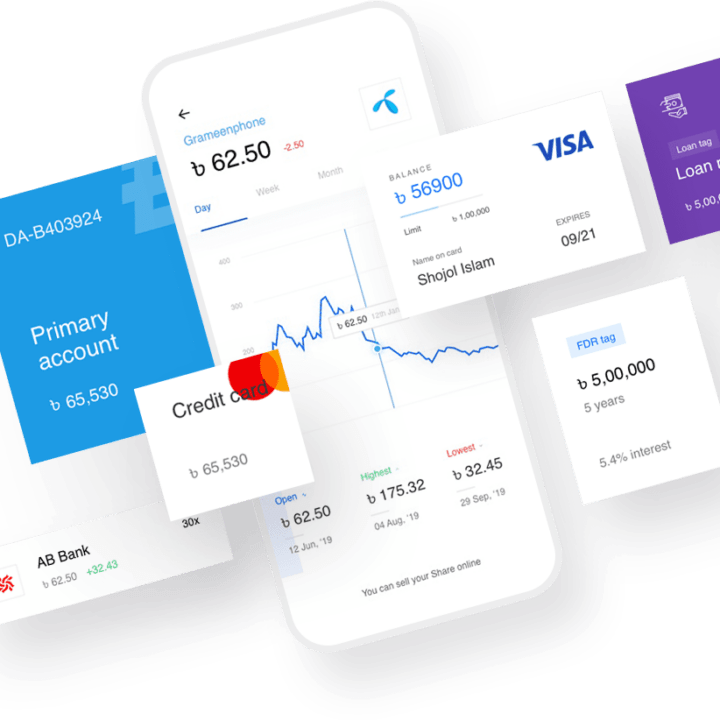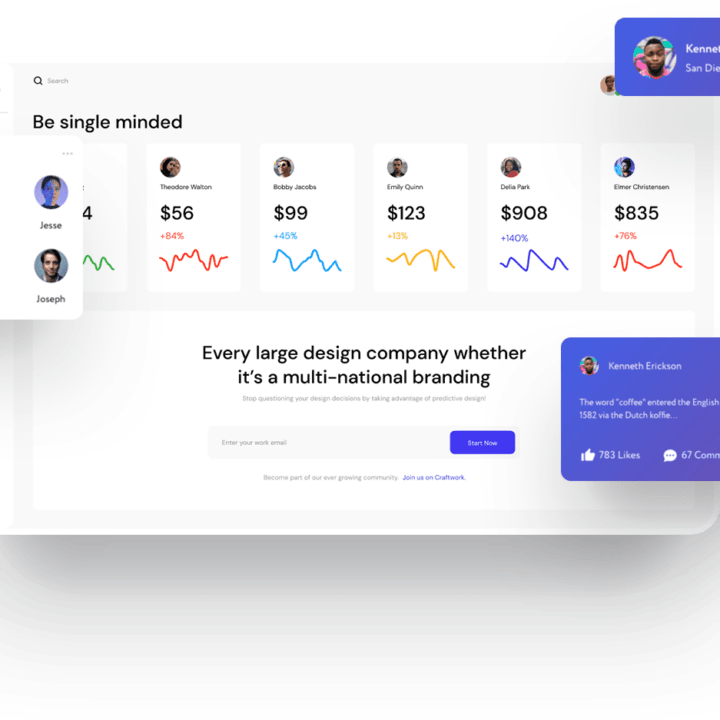Domain Names Explained: Choosing the Perfect Web Address
Domain Names Explained: Choosing the Perfect Web Address
When you decide to build a website for your business, one of the first and most important steps is picking a domain name. Your domain is your digital identity—the online equivalent of your storefront sign and business address rolled into one. Customers remember it, type it, click it, and judge your credibility by it. In many ways, selecting your domain name is as consequential as choosing your business name itself.
Whether you use a website builder template, work with a digital agency, or decide to create a website in 1 hour with a modern, no-coding platform, having the right domain influences branding, trust, and search rankings. But what is a domain name exactly, and how do you ensure you pick the perfect one? Let’s dive deep.
What is a Domain Name?
A domain name is your website’s human-readable address on the internet. Behind the scenes, websites are hosted on servers with numerical IP addresses (e.g., 192.168.0.1). Since very few people can remember a string of numbers, we use words instead. That’s where domains come in.
For example, instead of typing an IP, your customers type yourbusiness.com. That simple, memorable address is your domain.
Structure of a Domain Name
A domain typically includes:
- Top-Level Domain (TLD): The extension like
.com,.net,.org, or newer options like.guruor.shop. - Second-Level Domain (SLD): The identifiable part of your name, e.g., “yourbusiness” in
yourbusiness.com. - Subdomains: Optional prefixes like
blog.yourbusiness.comorstore.yourbusiness.com.
Tip: A strong domain name is memorable, simple to spell, and closely aligned with your brand identity.
Why Your Domain Name Matters
For small businesses especially, your domain carries heavy weight. It affects:
- Brand Identity: Your domain should be memorable and reflect your brand’s personality.
- SEO Performance: Search engines do consider keywords in domains, though not as heavily as before.
- Trust & Professionalism: Customers trust professional domains far more than free subdomains like
myshop.freeplatform.com. - Marketing Campaigns: Easy-to-type domains are essential for ads, print materials, and word-of-mouth promotions.
Even if you opt for a small business website builder to launch fast, taking time to choose the right domain makes a lasting difference.
Steps to Choosing the Perfect Domain Name
1. Keep It Simple
Avoid complicated words, long strings, or numbers. The best domains are short, intuitive, and easy to type. “smithbakery.com” is simple. “smiths-best-artisan-breads-nyc-123.com” is… not.
2. Make It Memorable
Think like your customer. Will they easily recall your domain after hearing it once? Avoid homophones or tricky spellings.
3. Match Your Brand
If your brand name is “Green Blossom Florist,” try to secure a matching domain like greenblossom.com. Consistency strengthens brand recognition and prevents confusion.
4. Choose the Right TLD
.com remains the gold standard because it’s the most familiar globally. However, niche TLDs like .shop, .agency, or country-specific domains (.co.uk, .ca) can provide a unique edge.
5. Consider Keywords Strategically
Having a keyword in your domain can signal relevance (e.g., newyorkplumbing.com). But prioritize brand identity—stuffing too many keywords makes a domain clunky.
6. Avoid Hyphens & Numbers
People often forget them, mis-type them, or simply find them untrustworthy. Stick to clean, word-based domains.
7. Think Long-Term
Will your chosen domain still make sense in 10 years as your business grows and possibly diversifies? Avoid names too narrowly tied to one product.
8. Check Availability & Trademarks
Don’t risk a legal headache. Search trademark databases and verify domain availability before committing. Tools like ICANN WHOIS or services from registrars can help.
Domain Names and SEO: What You Need to Know
Google has downplayed exact-match domain impact, but your selection still influences SEO indirectly:
- Click-Through Rate (CTR): A trustworthy, relevant domain gets more clicks.
- Brand Visibility: Easy-to-share domains encourage linking and word-of-mouth recommendations.
- User Signals: Better memorability leads to returning visitors—another positive signal to search engines.
If you’re working with a digital agency, they’ll help align your domain with SEO strategy. But even with a modern website builder for beginners, investing in a good domain boosts organic traffic.
Case Studies: Good vs. Bad Domain Choices
Case 1: The Catchy, Brand-Building Domain
A coffee shop named “Daily Grind” chose dailygrindcafe.com. It’s clear, memorable, and evokes the business spirit. Within three months, direct traffic grew 30% thanks to referrals and easy memorability.
Case 2: The Overcomplicated Domain
A cleaning company picked 24hrnyc-cleaning-service-specialists123.com. Not only was it forgettable, but potential clients were skeptical of its credibility. Their bounce rates remained high, as people perceived the brand as unpolished.
How to Register Your Domain
- Choose a Registrar: Services like GoDaddy, Namecheap, or your website builder partner handle registration.
- Search Availability: Use the registrar’s search tool to find available names.
- Select TLD & Version: Consider registering multiple variations (e.g., .com and .net) to protect your brand.
- Purchase & Link: Complete the purchase and connect to your hosting or website builder.
Should You Buy Multiple Domains?
Yes! For brand protection, it’s often wise to buy variations, common misspellings, and other TLDs (like .net, .org, or your country domain). Forward them to your main domain to capture all traffic.
How Domains Work With Website Builders
If you use a website builder with no coding required, you typically get a free subdomain (like yourname.pixelcloudmedia.com) initially. However, connecting a custom domain instantly boosts professionalism. Most modern website builder platforms allow you to integrate your purchased domain in a couple of clicks.
Domain Name Security & Ownership
- Buy in Your Name: Make sure the domain is registered under your details, not just your agency’s.
- Enable Domain Privacy: Prevent spammers from harvesting your registration info.
- Lock Your Domain: Use registrar settings to prevent unauthorized transfers.
- Renew Automatically: Set auto-renew to prevent losing your domain from expiration.
Most Popular Domain Extensions and What They Mean
- .com: Universal and trustworthy. Best for almost all businesses.
- .org: Traditionally for nonprofits, but sometimes used by businesses.
- .net: Once for networks, now general use. Works as a backup if .com is taken.
- Country codes: Such as
.co.uk,.ca. Excellent for local businesses needing geo-targeted branding. - Modern TLDs: Like
.shop,.studio,.agency. Trendy, can make memorable branding but sometimes feel less trustworthy.
Domain Name Red Flags to Avoid
- Hyphens (hard to explain verbally, often look suspicious).
- Numbers (people won’t know if to spell them out: “5” vs. “five”).
- Trademark Risks (don’t use brand-related keywords you don’t own).
- Excessive Keywords (keyword-stuffed domains like “bestplumbernewyorkaffordablecheap.com” look spammy).
FAQ: Domain Names
Can I create a website without buying a domain?
Yes, website builders offer free subdomains, but customers take you less seriously. Investing in a proper domain is worth it.
Do domains affect SEO?
Keywords in the domain can help slightly, but brand recognition and quality content matter more.
How much does a domain cost?
Usually between $10–$20 per year for .com domains. Premium names can cost thousands.
Do I own my domain forever?
No, you “rent” it per year. Always renew before expiration or set auto-renewal.
Should I buy multiple TLDs?
Yes, if you’re branding seriously. It protects your name from competitors and typo traffic leaks.
Conclusion
Your domain name is one of your business’s most valuable digital assets. It’s the first thing customers see, a huge driver of trust, and a vital part of your marketing. Take the time to choose carefully: keep it short, brandable, easy to type, and aligned with your professional goals.
Whether you’re setting up with a local business website builder, working with a digital agency, or even teaching yourself how to build a website without coding, the right domain transforms your presence from amateur to professional. Don’t settle—make your domain investment count.
Ready to get online? Start with Pixel Cloud Media’s Website Builder, secure your domain, and create a professional website that customers can easily find, trust, and remember.





